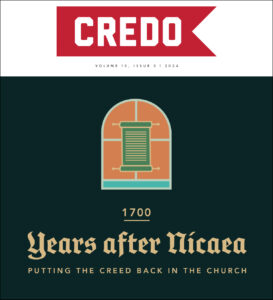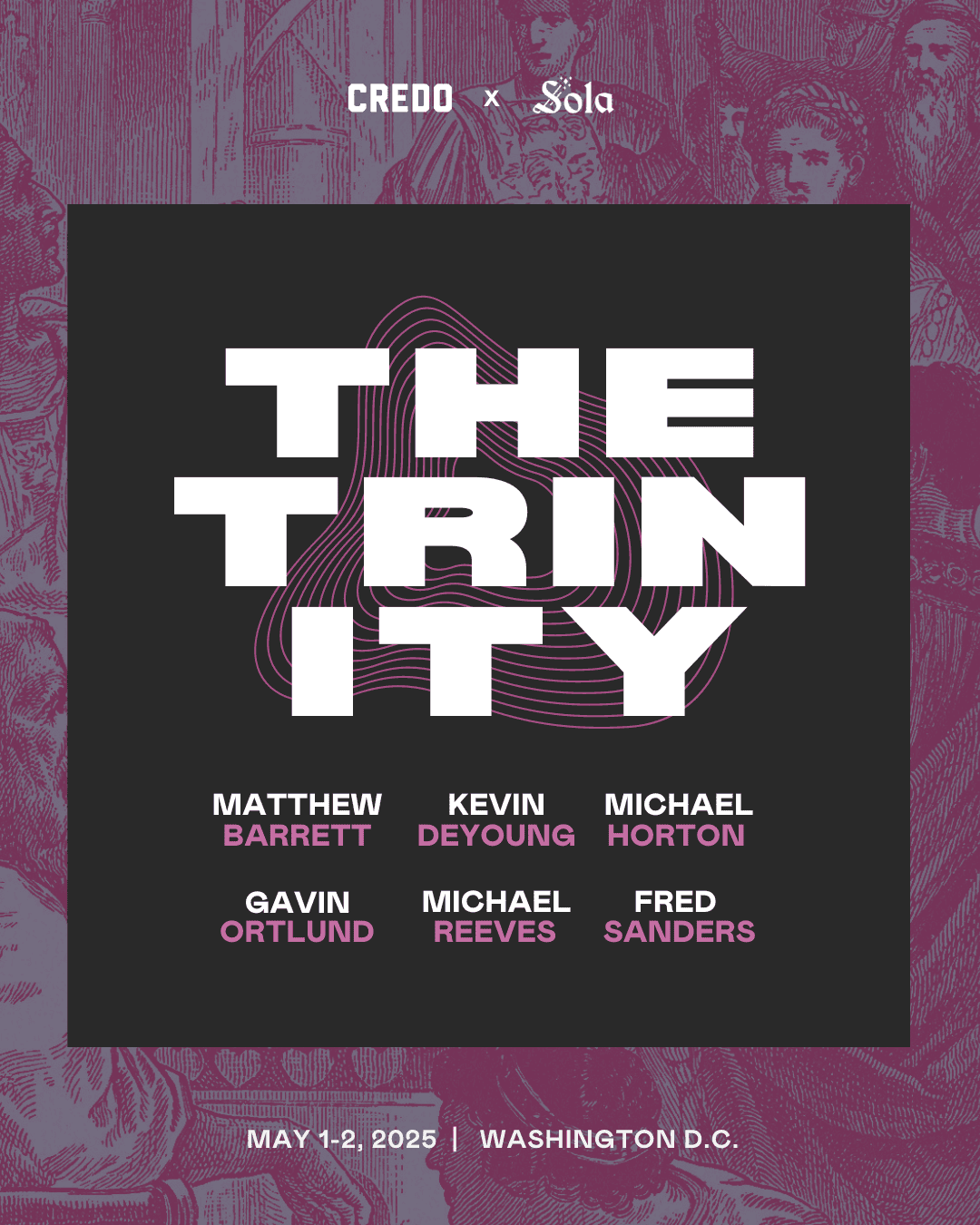Every week, I stand before my congregation with the Bible in hand, ready to proclaim God’s Word. Preaching isn’t just speaking; it’s sharing the gospel truthfully and calling the church to live by it. This responsibility is both a privilege and a serious task. Each sermon is an opportunity to show people who Jesus truly is and to invite them to know Him. To stay grounded in this calling, I rely on a historic foundation: the Nicene Creed. This ancient statement of faith has been a steady guide, helping me stay focused on the true Christ—the Christ revealed in Scripture, not a Christ shaped by my own ideas or cultural influences.
As pastors, we often face pressure to be relevant, creative, or even controversial to draw attention. But the most valuable way to faithful preaching is to stay true to the message of Jesus. The Nicene Creed helps me do just that. It serves as a reliable guide, reminding me of the foundational truths about Christ. The Creed has shaped my preaching by keeping it centered on the true Jesus, rather than letting outside influences sway my message. It’s a guide I turn to, not as Scripture, but as a faithful summary of key beliefs that have shaped the church’s understanding of Jesus for 1,700 years.
Cutting the Cloth Straight
Before dismissing the importance of a creed, we should remember what Paul told Timothy: to “cut the cloth straight” (2 Timothy 2:15). This means that, as preachers, we must handle God’s Word carefully and accurately, ensuring our teaching stays true to Scripture. Preaching with integrity requires us to rightly divide the Word of Truth, presenting it with reverence and clarity. In this way, the Nicene Creed is like a pattern that a tailor uses to cut fabric accurately. The Nicene Creed acts like a pattern that helps us “cut the cloth straight.” It’s not the pattern itself—Jesus is the true pattern—but the Creed faithfully reflects on Scripture and presents Christ in scriptural language, ensuring that the cloth is cut precisely.The Creed has shaped my preaching by keeping it centered on the true Jesus, rather than letting outside influences sway my message. Share on X
Most of us are used to using some form of supplemental material in our study—whether commentaries, historical references, or theological insights. The Nicene Creed acts in a similar way, running in the background of my preparation, reminding me of the core truths about Christ. The Creed doesn’t carry the same authority as Scripture, but it reflects faithful study of the Bible’s teachings, reminding us of what Christians have believed across generations. It’s a tool that, like a pattern, helps me “cut straight” by aligning my understanding of Jesus with what the Bible says about Him. Without a guide like this, there’s a risk of unintentionally drifting from the truth in our efforts to relate to the culture.
At its heart, the Nicene Creed was born out of a desire to understand Jesus more deeply and to clarify who He truly is. The church leaders who gathered to write the Creed wrestled with Scripture and tried to interpret a world transformed by the reality of Jesus’ resurrection. They lived in a time when belief in a resurrected Jesus was radical, even dangerous, and yet they came together to declare, “Jesus is alive!” In many ways, their context was not so different from ours, filled with questions, doubts, and cultural pressures. The Creed they crafted wasn’t just a statement; it was a commitment to preach Jesus faithfully, a commitment I share every time I step into the pulpit.At its heart, the Nicene Creed was born out of a desire to understand Jesus more deeply and to clarify who He truly is. Share on X
Integrity in Preaching: Rooted in Christ
One of the greatest challenges in preaching is staying true to the message of Christ Himself, not a message of our own making. The Nicene Creed helps me preach with integrity, ensuring that I present Christ as He truly is. Early Christian leaders like Athanasius argued that we can only know Jesus as He is revealed in His gospel. This idea emphasizes that we cannot separate Jesus from His message or reshape Him to fit our personal or cultural ideas. The theologian Thomas Torrance summarized this well when he said the real Christ is “clothed in his gospel.” Faithful preaching requires that we don’t separate Jesus from His teachings; they are one and the same.
As I prepare each sermon, I constantly ask myself: Am I preaching the true Christ, or am I letting trends, traditions, or personal interpretations shape my message? The Nicene Creed helps by affirming key truths about Jesus, like His identity as “true God from true God” and His role in our salvation. When I preach, my goal is to proclaim Christ as He truly is, fully and faithfully, ensuring that I do not reduce Him to ideas or values apart from His person.
The Creed also reminds me to preach the fullness of Jesus’ identity and work. He is not just a good teacher or a wise guide; He is the Son of God, eternally one with the Father. The Creed’s emphasis on Jesus as both fully God and fully human keeps my preaching centered on the mystery and power of who Jesus is. By rooting my sermons in these truths, I can help my congregation see Jesus as the living Savior, not just a character in a story.
Avoiding the Trap of Reducing the Gospel
It’s easy to turn the gospel into a set of ideas or rules, but the Nicene Creed challenges us to keep the focus on Jesus. The Apostle Paul emphasized this when he wrote, “Him we proclaim.” The gospel is about presenting the living Christ, not just discussing Him. Faithful preaching points to Jesus—alive, active, and present. The Nicene Creed reminds me that the gospel is not simply a message about Jesus; it is Jesus Himself, revealing the love of God through His life, death, and resurrection.
There is a subtle but dangerous temptation in ministry to refer to “the gospel” as if it were something separate from Christ. We might talk about the gospel’s values or benefits, but without Jesus, we’re left with empty ideas. The Creed serves as a call to preach not just about Jesus, but to proclaim Jesus Himself—personal, powerful, and engaged with us today.
The Creed also points to the Spirit’s role in our preaching. The Spirit-inspired Scripture testifies about Christ, and faithful preaching depends on the Spirit to reveal Jesus to those who hear. The Nicene Creed helps me remember that preaching is not just teaching facts; it is presenting the living Christ through the power of the Spirit, drawing people into a relationship with Him.
Why Creeds Matter: The Language of Faith
In a constantly changing world, the Nicene Creed is a strong foundation for preaching the true Christ. Share on XThe Nicene Creed uses phrases like “begotten, not made” to clarify that Jesus and the Father share the same nature coequally. Its central phrase, “of one essence with the Father,” ensures that we “cut the cloth straight.” Like a tailor follows a pattern to cut fabric, pastors use the Creed to make sure their teaching aligns with Scripture. This language stops us from creating a “Christ” based on personal preferences. Instead, we’re guided to preach the true Christ as He is in Scripture.
The language of the Creed is carefully chosen to prevent us from creating a Christ that fits our culture or imagination. By grounding us in Jesus as fully God and fully human, the Nicene Creed helps us present Christ with clarity and integrity.
God is For Us
At the heart of the Nicene Creed is the phrase, “for us and for our salvation.” This means God is for us, as seen in Jesus’ life, death, and resurrection. Christianity isn’t just about ideas; it’s about the living God who loves us and invites us to know him. This core truth, echoed in 2 Corinthians 5:21, shows us that God’s entire plan—Jesus’ life, death, resurrection, and everything else—is meant to draw us into a relationship with Him. As Athanasius said, “Without ceasing to be what he was, he became what he was not in order to make us as he is!” The Creed anchors our faith in God’s purpose, which is to bring us into His love and life.
Conclusion: Anchored in Eternal Truth
The Nicene Creed, which turns 1,700 years old in 2025, remains as relevant and influential as ever. In a time when pastors face pressure to adjust their message, the Creed reminds me to hold on to eternal truths. It calls me to preach not a “safe” or convenient Christ, but the real Christ—fully God, fully man, fully present in His gospel. By guiding me to preach Him rather than just ideas about Him, the Creed keeps Christ at the center of every message, ensuring that I preach not only hope but the Savior who embodies it.
In a constantly changing world, the Nicene Creed is a strong foundation for preaching the true Christ. It reminds me that my role is not just to teach, but to lead people to Jesus as He truly is: alive, present, and actively involved in our lives. By staying anchored in the Creed’s timeless truths, I can faithfully reflect the gospel and help others come to know Christ in His fullness.



